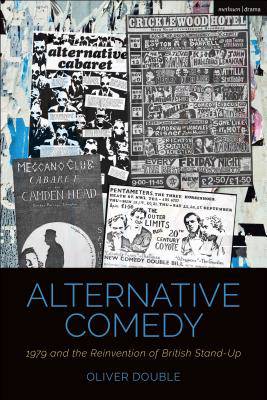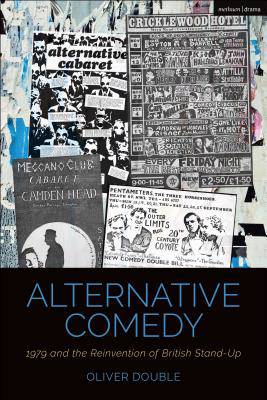
Bedankt voor het vertrouwen het afgelopen jaar! Om jou te bedanken bieden we GRATIS verzending (in België) aan op alles gedurende de hele maand januari.
- Afhalen na 1 uur in een winkel met voorraad
- In januari gratis thuislevering in België
- Ruim aanbod met 7 miljoen producten
Bedankt voor het vertrouwen het afgelopen jaar! Om jou te bedanken bieden we GRATIS verzending (in België) aan op alles gedurende de hele maand januari.
- Afhalen na 1 uur in een winkel met voorraad
- In januari gratis thuislevering in België
- Ruim aanbod met 7 miljoen producten
Zoeken
€ 203,95
+ 407 punten
Uitvoering
Omschrijving
In the late 1970s, the alternative comedy scene exploded into life in Britain and completely changed the style, subject matter and politics of British stand-up. Contemporary critics talked about it as 'anti-matter comedy' that 'makes you laugh while actually rearranging large chunks of your brain'. This book draws on a wealth of archive material - including unpublished recordings of early performances - and new interviews with key figures such as Alexei Sayle, Andy de la Tour and Jim Barclay, to provide a detailed history of the early scene and an examination of the distinctive modes of performance style which developed.
Beginning with its origins, the volume traces the influence of American stand-up, and in particular the significance of Mort Sahl and Lenny Bruce as the originators of a style of stand-up that influenced the British pioneers of alternative comedy. It shows how the opening of the Comedy Store in 1979 provided a catalyst for a new movement, which grew outward from there with the foundation of the group Alternative Cabaret and the opening of the Comic Strip. But it also looks at smaller venues and less celebrated acts that have not been as well remembered, including ranting poets and street performers. Finally, it looks at alternative comedy's legacy, showing how it was the starting point for the UK's thriving and varied live scene, which encompasses anything from small pub gigs to huge arena tours.
Beginning with its origins, the volume traces the influence of American stand-up, and in particular the significance of Mort Sahl and Lenny Bruce as the originators of a style of stand-up that influenced the British pioneers of alternative comedy. It shows how the opening of the Comedy Store in 1979 provided a catalyst for a new movement, which grew outward from there with the foundation of the group Alternative Cabaret and the opening of the Comic Strip. But it also looks at smaller venues and less celebrated acts that have not been as well remembered, including ranting poets and street performers. Finally, it looks at alternative comedy's legacy, showing how it was the starting point for the UK's thriving and varied live scene, which encompasses anything from small pub gigs to huge arena tours.
Specificaties
Betrokkenen
- Auteur(s):
- Uitgeverij:
Inhoud
- Aantal bladzijden:
- 240
- Taal:
- Engels
- Reeks:
Eigenschappen
- Productcode (EAN):
- 9781350052802
- Verschijningsdatum:
- 16/04/2020
- Uitvoering:
- Hardcover
- Formaat:
- Genaaid
- Afmetingen:
- 140 mm x 216 mm
- Gewicht:
- 417 g

Alleen bij Standaard Boekhandel
+ 407 punten op je klantenkaart van Standaard Boekhandel
Beoordelingen
We publiceren alleen reviews die voldoen aan de voorwaarden voor reviews. Bekijk onze voorwaarden voor reviews.









